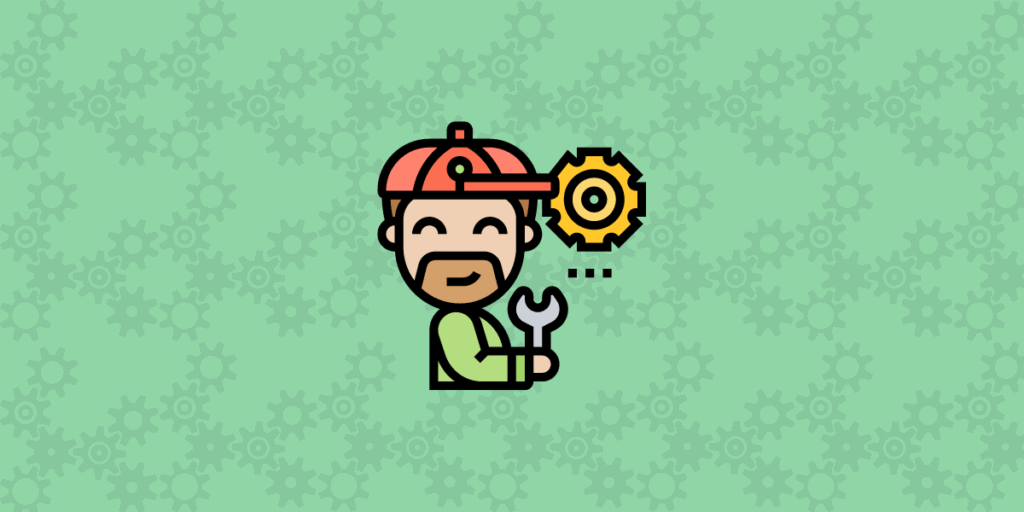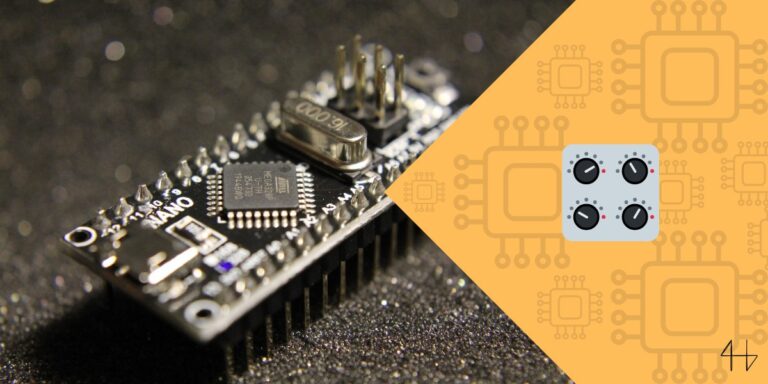Are you bored at home looking for some engineering project ideas? Then let me help you decide on your next creation!
There are so many projects to build and problems to solve, but which ones are interesting, fun, and useful?
I have found 21 engineering project ideas for 2025 that promise to entertain you and solve at least one of life’s problems. I have ideas for mechanics, robotics, software development, computer science, and DIY gadgets.
There’s something for everyone in here.
I studied Mechatronics at an Austrian university and have been developing smart kitchens ever since! So trust me when I recommend these fun projects!
TL;DR
Choose one (or more) of 25 engineering projects for you to work on in 2025! Here are some fun project ideas and innovative solutions for anyone to try.
What are the Project ideas?
Now that we’ve set the stage for experimentation and innovation, let’s get straight to the point: What are the project ideas in the engineering domain for 2025?
Our world is driven by technology that will make life easier and better for its users. These projects offer practical ways to create innovative tools to solve specific problems.
Mechanical Project ideas
Projects in this engineering domain require access to some way of designing and manufacturing mechanical components. I recommend a 3D Printer because they have become cheap and easy to use, like the sovul sv60. However, the best material to use is steel you can mill and shape it into anything you design.
However, my first mechanical engineering projects were all made out of wood. I used the tools and materials I had lying around to build my first projects. This helped me expand my set of skills and come up with creative ways to create workarounds for some of my problems.

3 Speed Gear Box
Skill Level: Beginner
Here is a beginner-friendly project to figure out how gears and transmissions work. This will give you a better understanding of gear ratios and how to optimize performance.
I found this project enlightening – had an aha moment while putting it all together.
Mini Belt Grinder
Skill Level: Intermediate
A lightweight mini belt grinder is super practical. I still use mine to manufacture mechanical parts for other projects.
This can build onto the 3-speed gearbox project if you want to run the grinder at different speeds, but that isn’t necessary. Either way, you will design some kind of transmission to get the grinder running at the right speed for you.
Because a grinder can be dangerous when left out in the open, I recommend designing a safety mechanism to go along with it. I’d prefer it if everyone kept all their fingers.
You’re going to need a bit of electrical knowledge for this one – for the electric motors to run the grinder. So I guess it could also be considered as one of the beginner-level electronics project ideas.
Planetary Gear
Skill level: Intermediate
Here is a project that I found hypnotic.
A planetary gear is a challenging combination of creativity, and problem-solving skills – exactly what we engineers strive for. The movement of this gear is a true work of art that goes unappreciated by most people.
The speed reduction of this gear is generally used in cars and robotics. This project is more of a sub-project for the next robot you plan on building
Alternatively, you can just build it for the hypnotic movement like I did.
Cycloidal Gear
Skill level: Intermediate
This gear has a movement just as beautifully thought out as the planetary gear.
I would recommend this project to anyone looking to challenge the advanced concepts in gear management. This project challenges you to apply theoretical knowledge to practical engineering solutions, which will give you a deeper understanding of gear systems and their applications.
I needed this gear to give me a reliable speed conversion for my smart window project. The speed reduction is mostly for safety but the gear design is for my satisfaction
Mini Conveyor using Geneva Mechanism
Skill level: Advanced
Staying on the subject of satisfying gear movements, here is a practical use for the Geneva mechanism.
This project allows you to explore the intersection of mechanical engineering and motor control, offering hands-on experience in designing and constructing a functional conveyor system.
With a focus on motors and motion control, this project helped me understand how to blend mechanical and electrical engineering.
I’d like to tell you that it was effortless, but that would be a lie. Everything clicked for me when I was on the verge of rage-quitting!
Software project ideas
Programming seems to becoming a required skill for any engineer. Whether you are an electrical engineer or studying computer science, this is the project set you’ll want to look at.
These project ideas are a start to becoming a fair decent programmer yourself. I highly recommend using GitHub for version control and some kind of linting tool to help with debugging while programming. Personally, I use PC-Lint for my linting. They make your life so much easier, trust me.

Tic-Tac-Toe game
Skill level: Beginner
Here is my first-ever private programming project. I wrote it as a command line game because I had no idea how to create a GUI at the time.
Programming the AI to play against was kind of a challenge. You could make it plan its next move or you could just let it choose a random place to put it.
Additionally, if you want to make it complex, you can program the AI to recognize strategies and block the player from succeeding, but that would seriously increase the difficulty of the project.
To-do list
Skill level: Beginner
Looking to streamline your tasks and boost productivity? Then I’d recommend creating a to-do list app.
You will learn how to use a gui and you can always expand on the features of this project!
QT has a really good tutorial on how to program one using their environment. That is the one I followed and I am happy with the results. Or you could use Kotlin in Android Studio or Swift to develop a fairly decent app.
Local train ticketing
Skill level: Intermediate
This concept is fairly simple – write a program to help a train station sell tickets more easily.
I suggest using an API to get the schedules of the trains at your local train station and print out receipts and tickets after a purchase has been made.
By integrating programming principles with real-world applications, you’ll not only sharpen your coding skills but also contribute to improving transportation efficiency.
Simple and helpful to small communities that local governments have failed.
Weather Forecast
Skill level: intermediate
This one is graphic design with an API import.
However, you can integrate it into a smart home and add features that your default weather app doesn’t add, like a full map of your area.
Alternatively, you could get a fascinating glimpse into the world of meteorology, by analyzing weather data and developing algorithms for accurate forecasting.
This is an amazing project if you are a weather nerd or plan on getting into data analysis.
I haven’t tried this one myself, but I would love to integrate it into my smart home!
Fingerprint voting system
Skill level: Advanced
This project is advanced for one main reason: security.
You would check if using one of the simple electronics project ideas – fingerprint scanner – add in a UI with the parties to vote for before making sure that this device is nearly unhackable.
I suggest going through the contents of the CompTIA S+ course to know what you need to protect against. Total Seminars has a particularly good course on this subject.
But above all else, make sure your voting systems are secure for the future of your country! (Queue patriotic music and heroic music)
Either way, this is a really cool system to construct. The very specific problem that I can see myself solving is more on the theme of home security and less on voting, but voting systems get the idea of security across quite nicely.
Electrical and Electronics project ideas
Now we get to the realm of the shocking engineering domain.
Crickets
Anyways, these simple electronics project ideas are a great starting point for aspiring engineers and students. Making these projects and finding creative ways to implement them will give all engineering students s Stockholm syndrome relationship with electronics projects.
Seriously though, these electronics project ideas are amazing when they work! (if they work)
Give this fickle engineering domain a try. Personally, I love it.

Simple metal detector
Skill level: Beginner
Exploring simple electronics project ideas? Here is a beginner-friendly one for you – a metal detector.
Give into the edge to become a beach bum searching for beach treasures! Make your own metal detector with some spare parts and a couple of batteries.
This project is essentially a circuit using hall effect sensors and a light.
Very beginner-friendly!
Transformerless Power Supply
Skill level: Beginner
No lie, this one is super easy. I make about 50 of them while working on converting a beach buggy to an electric-powered buggy.
This is a perfect intro to electronics and power supply. You can easily reuse this circuit for any one of the systems you will create in the future that need a quick and easy PSU. Like a battery charging circuit.
Once you have all of the parts, it’ll take you like 20 minutes to solder together and maybe another 7 minutes to test.
Highly recommend doing this one!
Magnetic toolbox lock
Skill level: Beginner
I hate it when people touch my tools. I need my tools to be in the right place when I need them. This magnetic lock stopped people from borrowing my tools and now they stay where I left them – crazy concept, right?
Basically just makes practical use of what we all learned in science class – simple electromagnetism.
Additionally, you can use an RFID circuit, or fingerprint scanner to ensure that you’re the only one with access. If you do that, I’d up the skill level to an intermediate.
Fingerprint Based Security Lock
Skill level: Intermediate
This is like an easier version of the voting machine earlier – just more electronics/hardware-focused.
Constructing a fingerprint-based security lock offers an exciting opportunity to blend hardware and software in practical projects.
By programming and integrating fingerprint recognition, this project enhances security measures while providing hands-on experience in system design and implementation.
I have definitely emphasized this before and I’ll say it again – Amazing project for smart home security. I’m telling you, add in a few motion sensors, speakers, and a camera and you’ll have a high-end security camera worth about 100$.
Secure Room Access System
Skill level: Advanced
Big fan of Colin Furze’s bunker? Yeah, me too.
Sadly I don’t have any land or money to build something that spectacular. However, I can create a secure room and have a top-secret access system built in to keep all the weirdos out, and you can too!
You can integrate advanced security measures for controlled entry (top security clearance personnel only), and add a voice command like “Execute Barn Door Protocol”
Enjoy using this one to scare away some guests using spinning red alarm lights and a loud buzzer.
Home automation and IoT project ideas
It’s no secret, that a lot of my projects are home automation based at the moment. It is my current passion.
I am very lazy and don’t want to do any chores. Like I always say: “Why spend 15 min doing something when I can spend 8h to never do it again”
Here are 5 innovative solutions and project ideas that I have found the most helpful.

Set Up Home Assistant Server
Skill level: Beginner
This is more of a prerequisite for home automation projects.
Set up your own home assistant server using Raspberry Pi and smart home components. This is a great hub for all of your future smart projects and automation ideas.
Super easy to implement.
This project offers a comprehensive exploration of Raspberry Pi capabilities and smart home technologies, empowering you to customize your home automation system according to your preferences.
Compact Smart Switch
Skill level: Beginner
Personally, I am not a fan of smart bulbs. They are much more expensive than regular bulbs and I haven’t found one that actually looks appealing to me.
So instead, I just installed a smart switch behind my normal light switch.
Be careful: the cheapest solution is also not a great one. Make sure you get a smart switch that turns your light switches into OR logic circuits and not AND logic circuits. What a pain that is!
Smart House Plant Monitor
Skill level: Intermediate
I love plants, but I don’t have a green thumb.
So of course I automated the care of my plants. After setting up an automatic irrigation system I have set timers for my different plants and only give them the correct amount of water at the right time.
For my Monstera, I used the app picture to calculate that I need to water it every 2 weeks and exactly 764ml of water.
I don’t measure it down to the millimeter – too much of a headache, but send me an email if you figure out a reliable way to get it done!
Super helpful project for someone like me who has no natural green thumb!
Smart Fish Food Dispenser
Skill level: intermediate
Not going to lie, I don’t have a fish. Not since I was 16.
I found this idea on Instagram and thought it was a really cool solution.
I constantly forget things, especially chores. Feeding my fish is something that I would always remember last second with one foot out the door.
This smart fish feeder uses a worm gear to push the right amount of fish food into the tank and can be controlled or even just automated. But don’t forget to set an alert for when you need to buy more fish food.
Smart Mirror
Skill level: advanced
Productivity Hack – build a smart mirror to show you everything you have planned for the day.
A smart mirror should have information that is used when getting ready. It needs to answer the questions:
- What is the weather like today?
- What do I have planned?
- Am I late?
I honestly don’t know how these are not commonplace items yet. They are beyond useful.
Bonus Project Idea: The Ultimate Tabletop Braai/BBQ
Skill level: Various
This is my current passion project. Braaiing or grilling is a HUGE part of my culture, and I want to use the skills I have learned from years of engineering projects to create the ultimate smart braai/bbq.
To be honest, this wasn’t my idea. My father challenged me to turn an empty 5l keg of beer into a small tabletop braai/BBQ.
But that is a really easy project.
But here’s the challenge: make a grill so that the paint on the outside of the keg doesn’t discolor when you light the fire. And on top of that, I need to make use of my skills to make a grill with more features than that of my old man.
This has led me to the following idea – a smart tabletop braai/bbq.
If I add in a microcontroller with a BLE module, and at the very least, just a thermometer, I can send a notification to my smart home system when the fire is at the right temperature. On top of that, by adding speakers I could set up timers to go off when the meat is cooked – or just use my smart speakers to play a specific song like “Burn Baby Burn!” by Magnificent Montague.
The concept itself is fairly simple, but the features I could add on would make all the difference!
Why should you be building your private projects?
As an engineer passionate about electronics, why should you be developing your private projects? The answer lies in the invaluable opportunities they offer for growth and exploration.
Building private projects allows you to apply theoretical knowledge to practical applications, honing your skills and fostering creativity. Whether it’s exploring new technologies, solving real-world problems, or simply indulging your curiosity, private projects provide a platform for personal and professional development unmatched by any classroom or textbook.
Why are projects important for engineering students?
Why are projects crucial for engineering students? For engineers, hands-on projects serve as vital learning experiences, allowing them to apply theoretical knowledge to real-world scenarios.
In the realm of electronics, projects offer opportunities to develop practical skills in circuit design, programming, and system integration.
By working on projects, students hone their problem-solving abilities, foster creativity, and gain valuable experience that prepares them for future engineering endeavors.
Conclusion
The best engineering projects for 2025 offer a diverse range of opportunities for innovation, creativity, and skill development.
From robotics and home automation to software development and electronics, these projects provide valuable hands-on experience that prepares engineers for the challenges of tomorrow. By tackling these projects, engineering enthusiasts can sharpen their problem-solving abilities, explore cutting-edge technologies, and make meaningful contributions to society.
So, whether you’re a seasoned engineer or just starting out, dive into these projects and embark on a journey of discovery and growth in the dynamic field of engineering.
FAQs
How do I get started on a Project?
To get started on a project, begin by understanding the V-model development process. Think like an engineer, breaking down the project into manageable stages. Start with thorough planning and requirements analysis before moving on to design, implementation, testing, and deployment. This structured approach ensures a systematic and efficient project execution.
What can I make for an Engineering project?
When brainstorming engineering project ideas, consider your interests and areas of expertise. You can make anything from a smart home device or a renewable energy solution to a robotics project or a mobile app. The possibilities are endless; choose a project that aligns with your passions and challenges you to grow as an engineer.
Which project is best for engineering students?
The best project for engineering students depends on their interests, skills, and career goals. Projects in robotics, software development, electronics, and renewable energy are popular choices. It’s essential to choose a project that aligns with your strengths and allows you to gain valuable hands-on experience in your chosen field of study.
How do I come up with engineering ideas?
To generate engineering ideas, start by identifying problems or areas of improvement in your surroundings. Explore your interests, stay updated on emerging technologies, and brainstorm with peers. Consider challenges you’ve encountered and think creatively about potential solutions. By staying curious and observant, you’ll uncover endless possibilities for innovative engineering projects.






